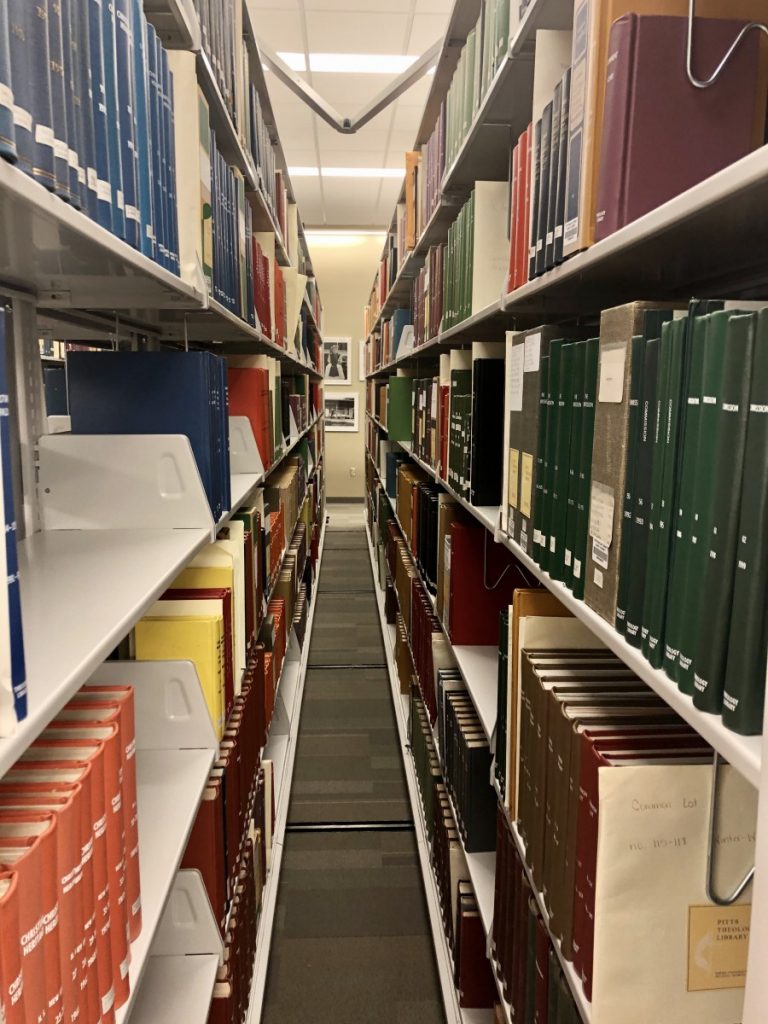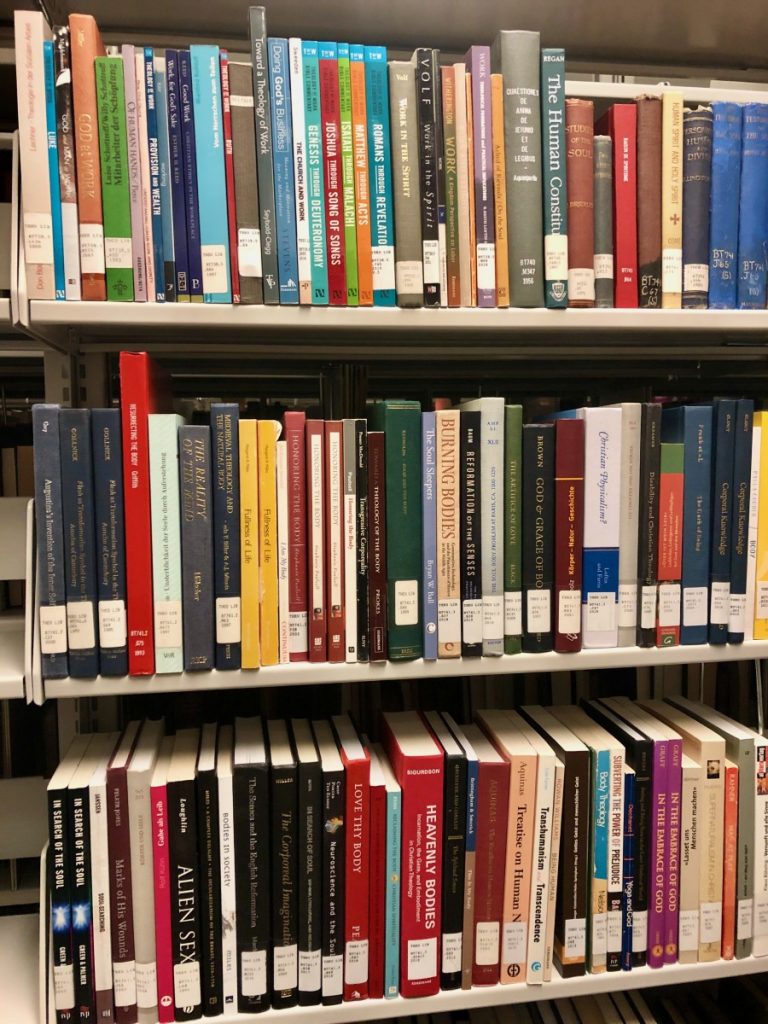 In specialized collections like that of Pitts Theology Library, we often recognize resources from their place on the shelf, size, or color. Titles, however, frequently get lost in the mix of the technical vocabulary, special characters, and foreign languages making the recollection of specific resources a challenge during a semester or years’ worth of reading. It can be tough to remember the title and author of a book you read a long time ago—even if it was a book that was really important to you. So how do we find those “little green and red books with classical writings,” or “that tool that lists the hymns that correspond with particular bible verses” when the main bibliographic information escapes us?
In specialized collections like that of Pitts Theology Library, we often recognize resources from their place on the shelf, size, or color. Titles, however, frequently get lost in the mix of the technical vocabulary, special characters, and foreign languages making the recollection of specific resources a challenge during a semester or years’ worth of reading. It can be tough to remember the title and author of a book you read a long time ago—even if it was a book that was really important to you. So how do we find those “little green and red books with classical writings,” or “that tool that lists the hymns that correspond with particular bible verses” when the main bibliographic information escapes us?
If you can’t remember the title or author of a book, try to recall specific details about it. Theology works are often classified by topic or subject and not necessarily by author or series. If it was theological, what was the focus: Christology? Creation? Sin? Do you remember when it was published, who published it, or any other works that the book mentioned (did it analyze Augustine’s Confessions, for instance?).
If it was a book about the Bible, was it a commentary (a book with verse-by-verse analysis of the biblical book), a thematic or theological treatment of a small set of Scripture (this is often called a monograph), or did it situate the study of the Bible or biblical book within a certain discipline or methodology (feminist biblical interpretation or comparison of the Psalms with Sumerian songs)?
Any additional details you can recall about the book will help! Don’t be afraid to focus on as many details as you can recall.
 Google can be a great help for finding works even if you can only remember sparse details. Before asking a librarian try to find any additional information, you can by doing a keyword search online! If you remember a specific passage from the publication, trying doing a reverse search of the words (in quotation marks) in Google Books for a preview of the matching book!
Google can be a great help for finding works even if you can only remember sparse details. Before asking a librarian try to find any additional information, you can by doing a keyword search online! If you remember a specific passage from the publication, trying doing a reverse search of the words (in quotation marks) in Google Books for a preview of the matching book!
Don’t forget to use the power of your friends, instructors, and classmates! Crowdsourcing online or on social media can be a great way to find what you’re looking for. In addition, take advantage of old syllabi, LibGuides, reading lists, or previous papers and projects in which you might have referenced the book. You can also try any of these websites to help you track it down.
Readers often ask librarians for help finding these kinds of books. While we can’t figure out the mystery every single time, but we do have a few tricks to help find the answer.
First, pin down everything you can remember about the book, plot, character names, time period in which the book may have been published, genre, methodology, etc. All these details are clues in identifying the title and author of the book.
 Online resources can help with your search for a half-remembered book, even if all you have is a basic plot line. Searching yourself is a good place to start; then, you can post to a listserv or discussion forum, where someone might recognize it. Chat with a librarian at pitts.emory.edu/ask for live reference help, or, last but not least, leave a comment on this post!
Online resources can help with your search for a half-remembered book, even if all you have is a basic plot line. Searching yourself is a good place to start; then, you can post to a listserv or discussion forum, where someone might recognize it. Chat with a librarian at pitts.emory.edu/ask for live reference help, or, last but not least, leave a comment on this post!
If you still can’t find the book you’re looking for, explore finding something new that might replace it. Sign up for the Pitts New Acquisitions Emails to see a list of recent purchases for all four areas of study at Candler.
This post is adapted from “Finding a Book When You’ve Forgotten Its Title” by Gwen Glazer, New York Library Communications [November 22, 2017], which is an update of a previous post by Sharon Rickson.
